Enhancing observational skills Normal Science Worksheets for Ages 7-9
8 filtered results
-
From - To
Discover our "Enhancing Observational Skills" Normal Science Worksheets, designed specifically for children aged 7-9. These engaging resources help budding scientists sharpen their ability to observe and analyze the world around them. Each worksheet offers interactive activities that promote critical thinking, encouraging kids to identify details, make comparisons, and draw conclusions from everyday scenarios. With a blend of fun exercises and educational content, our materials nurture curiosity and foster a deeper understanding of scientific concepts. Perfect for classroom use or at-home learning, these worksheets are an essential tool for developing keen observational skills that will benefit children throughout their educational journey.
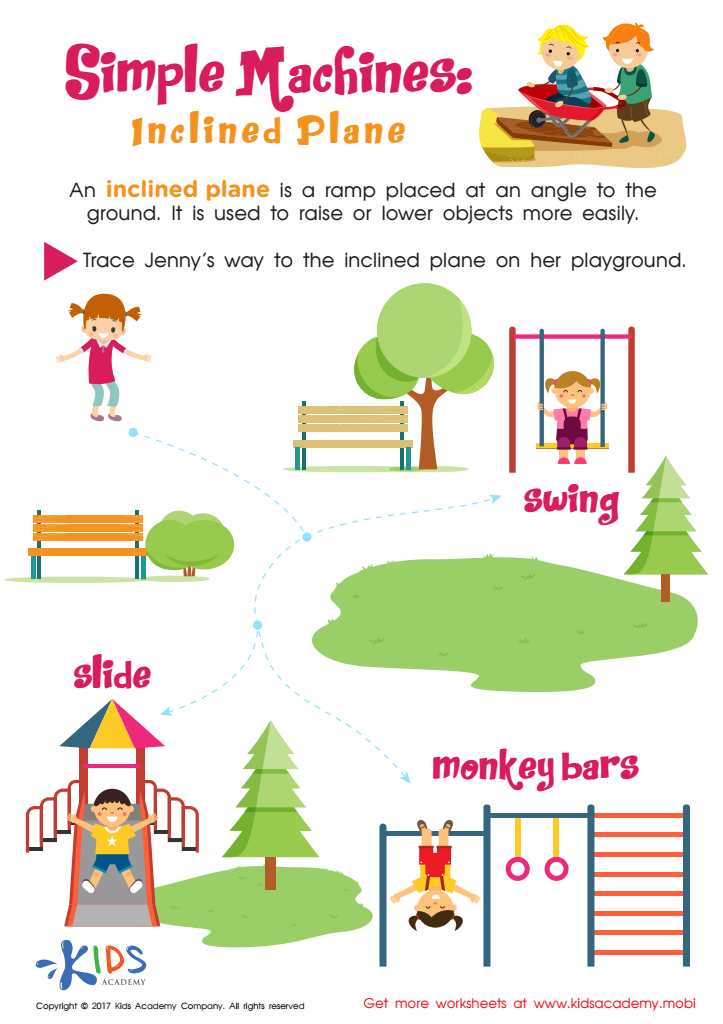

Simple Machines Inclined Plane Worksheet
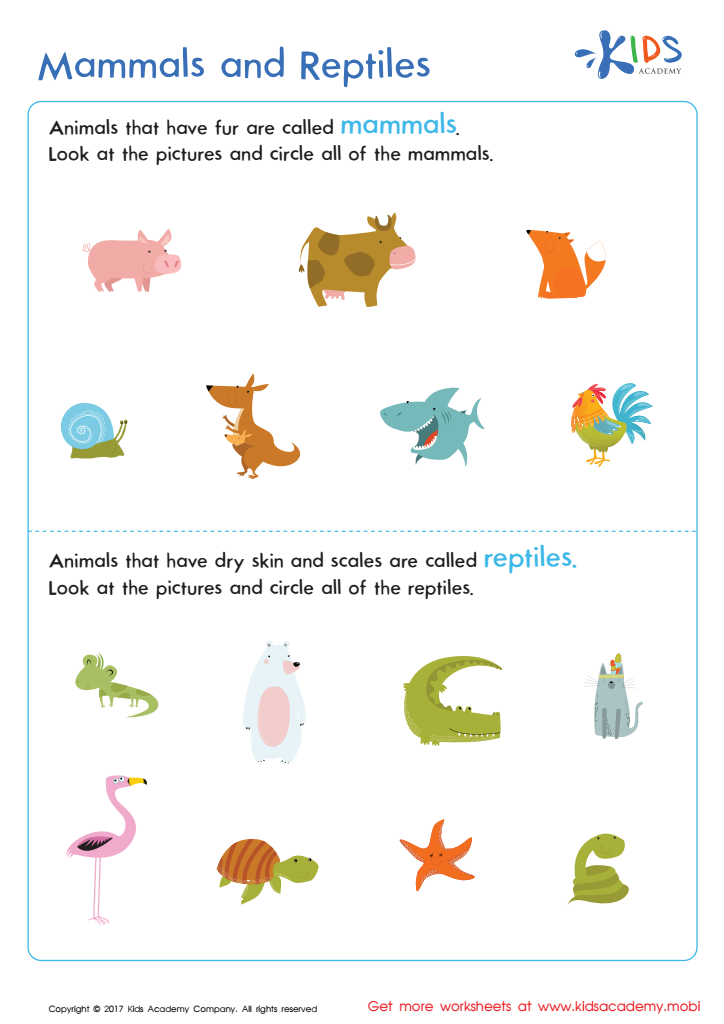

Mammals and Reptiles Worksheet
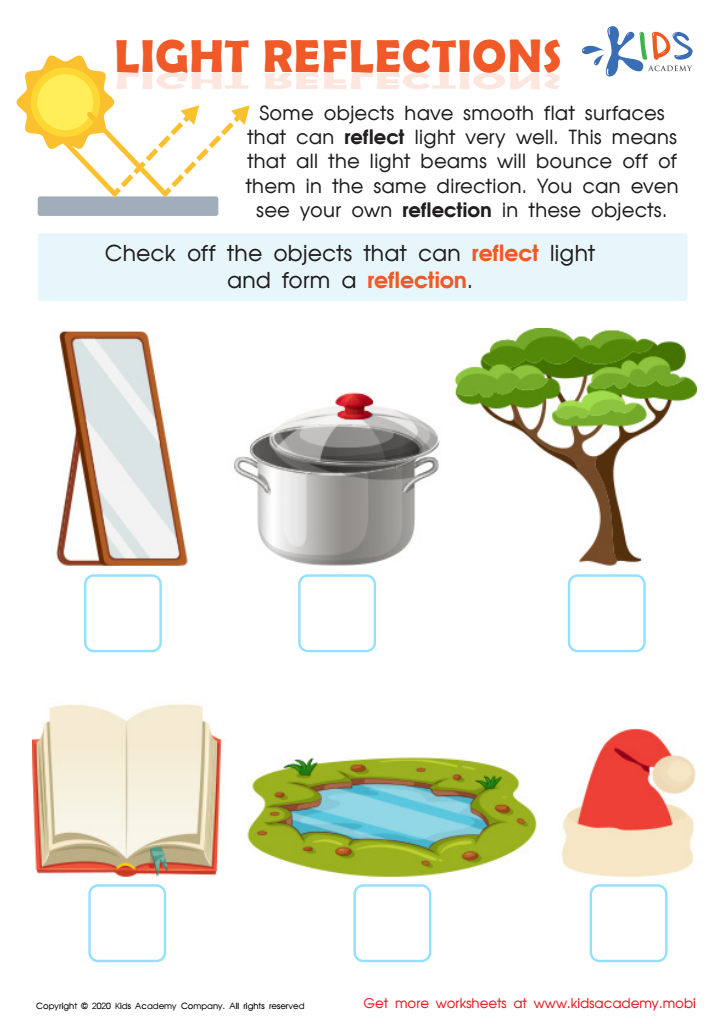

Light Reflections Worksheet
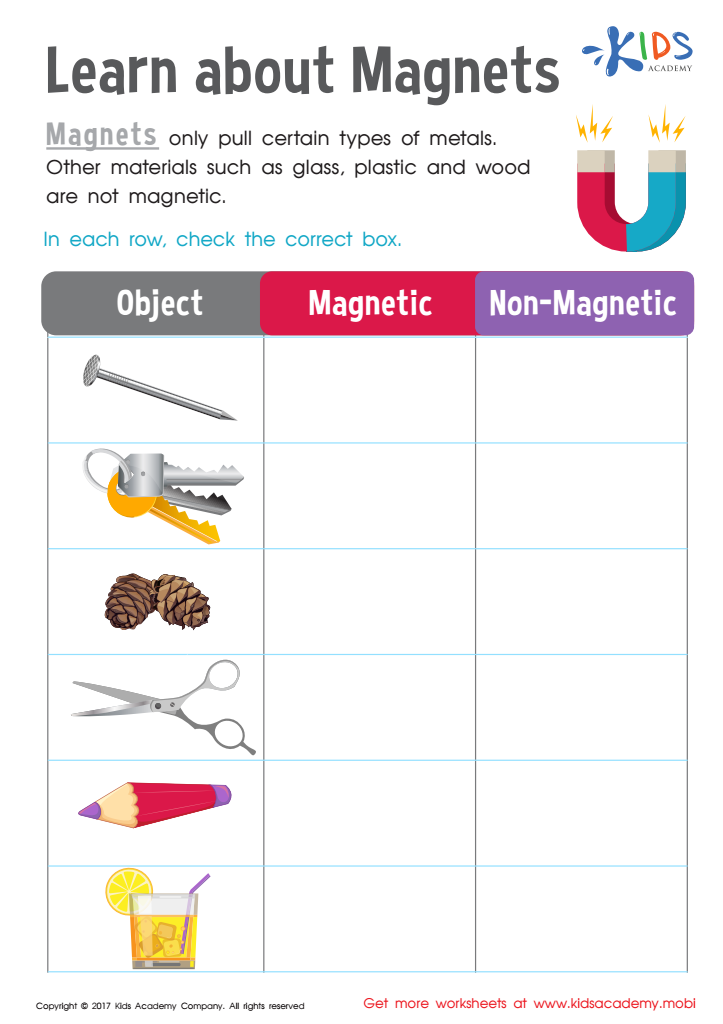

Magnetic Or Not Worksheet
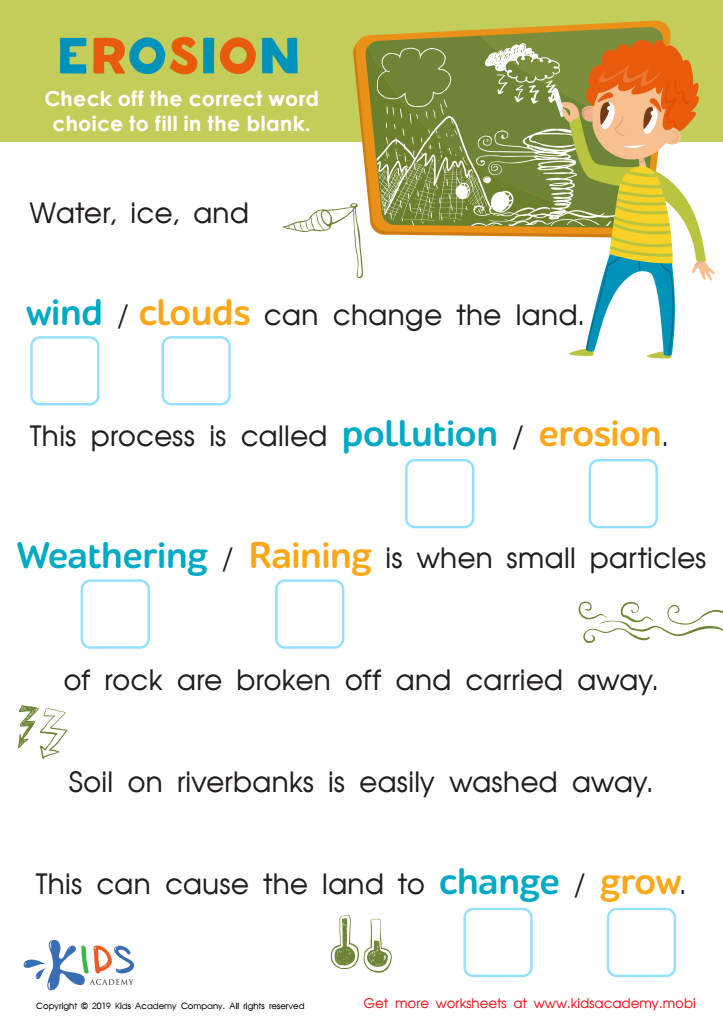

Erosion Worksheet
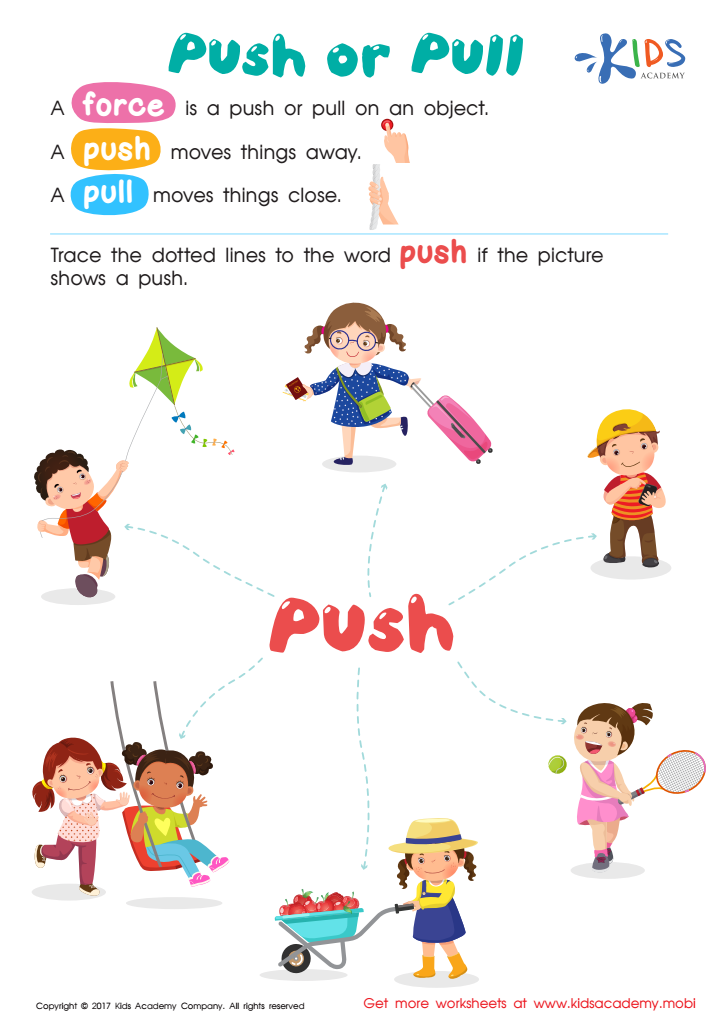

Push or Pull Worksheet
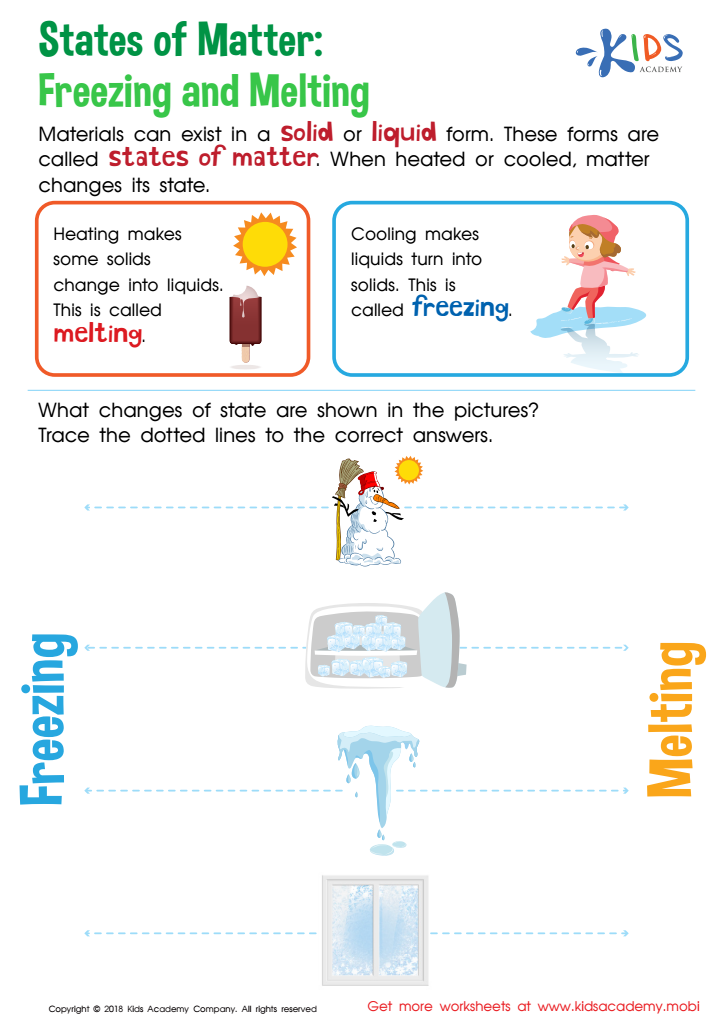

States of Matter: Freezing and Melting Worksheet
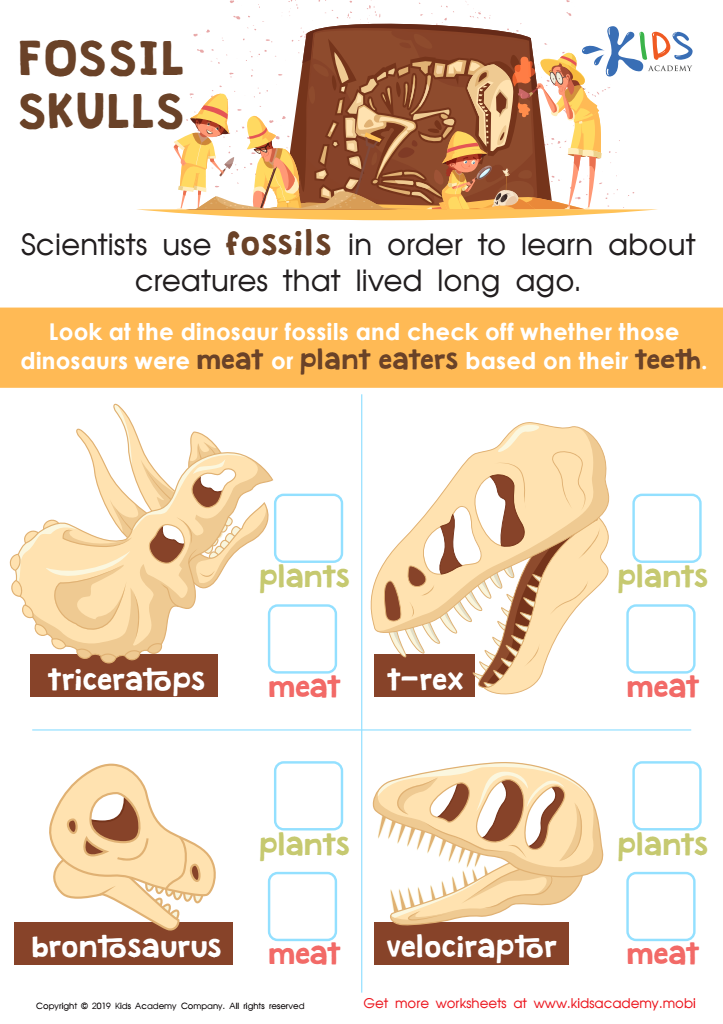

Fossil Skulls Worksheet
Enhancing observational skills in young learners, particularly in the context of Normal Science for ages 7-9, is vital for several reasons. Firstly, observational skills are fundamental to the scientific process. They empower children to notice and identify details in their environment, encouraging curiosity and fostering questions about what they see. By engaging young learners in observing natural phenomena, parents and teachers can stimulate critical thinking and promote a scientific mindset.
Moreover, strengthening these skills equips children with essential skills for future learning. As they advance in education, the ability to observe accurately will help them in subjects beyond science, such as math and art, where attention to detail is crucial. From a developmental perspective, children in this age group are naturally inquisitive. Providing opportunities to enhance their observational skills aligns with their cognitive growth, helping them to make connections and develop reasoning abilities.
Lastly, encouraging observational skills lays the groundwork for lifelong learning. Children who learn to observe carefully are more inclined to remain engaged in science and nature. By investing time in this fundamental skill, parents and teachers contribute to holistic development, motioning towards responsible and informed future citizens. Thus, enhancing observational skills in this age group is essential for academic and life success.
 Assign to My Students
Assign to My Students








%20(1).jpg)











